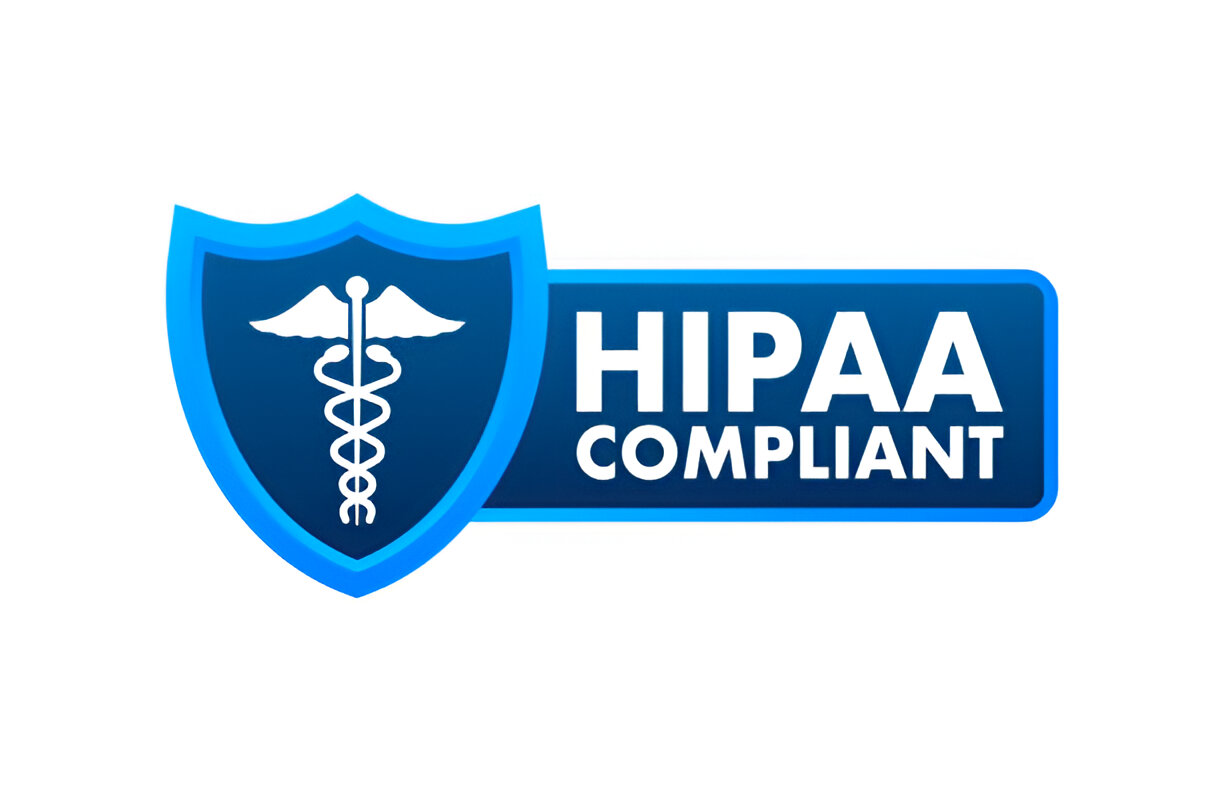In the rapidly evolving world of healthcare, the need for secure and compliant websites is more critical than ever. The Health Insurance Portability and Accountability Act (HIPAA) sets strict standards to protect sensitive patient data, and for any healthcare-related website, adherence to these standards is a legal requirement. Whether you are developing a telehealth platform, a patient portal, or a healthcare information site, ensuring HIPAA-compliant website development is crucial to safeguarding your patients’ privacy and maintaining trust.
This comprehensive guide will explore what HIPAA-compliant website development entails, why it is essential, and how to build a secure, functional website that meets these stringent regulations. For custom HIPAA-compliant solutions, check out Mental Health IT Solutions (MHIS).
Table of Contents:
- What Is HIPAA Compliance?
- Why Is HIPAA-Compliant Website Development Important?
- Key Elements of HIPAA-Compliant Websites
- Steps for Developing a HIPAA-Compliant Website
- Common Mistakes to Avoid in HIPAA-Compliant Website Development
- Best Platforms for HIPAA-Compliant Websites
- The Role of Encryption in HIPAA Compliance
- Mobile Optimization and HIPAA Compliance
- Frequently Asked Questions (FAQs)
What Is HIPAA Compliance?
HIPAA is a federal law enacted in 1996 to ensure the protection and confidentiality of sensitive patient health information, known as Protected Health Information (PHI). The law outlines strict guidelines for how healthcare organizations and their partners manage, store, and transmit PHI. For websites that handle or process PHI, following HIPAA rules is not optional — it’s a legal obligation.
Covered Entities Under HIPAA:
- Healthcare providers (e.g., doctors, psychologists, dentists, and chiropractors)
- Health insurance companies
- Healthcare clearinghouses
- Business associates that handle PHI on behalf of healthcare organizations
When it comes to website development, HIPAA compliance ensures that any online platform involving patient information, such as appointment scheduling, telehealth services, or patient portals, maintains the highest level of security.
Why Is HIPAA-Compliant Website Development Important?
1. Legal Requirements
Healthcare organizations must comply with HIPAA to avoid hefty fines and legal repercussions. Violating HIPAA can lead to fines of up to $50,000 per violation, with a maximum annual penalty of $1.5 million. Beyond fines, non-compliance could lead to lawsuits, damage to reputation, and loss of client trust.
2. Data Security
A HIPAA-compliant website ensures that sensitive data, including medical records and personal health information, remains secure from unauthorized access. In today’s digital age, cyberattacks are a constant threat, and developing a secure website is the first line of defense.
3. Client Trust and Credibility
In the healthcare industry, trust is paramount. Patients trust that their sensitive health information will be handled with care. By developing a HIPAA-compliant website, you are demonstrating your commitment to data protection and privacy, which strengthens your reputation and credibility.
Key Elements of HIPAA-Compliant Websites
To ensure your website complies with HIPAA standards, it must incorporate several key elements focused on security and privacy. Below are the essential components of a HIPAA-compliant website:
1. Encryption
HIPAA requires that all PHI is encrypted during transmission and storage. This ensures that even if unauthorized parties gain access to the data, they cannot read it without the decryption key. Using SSL (Secure Socket Layer) certificates ensures that any data transmitted between the website and its users is encrypted.
2. Secure Authentication and Access Control
Access to sensitive patient data should be limited to authorized users only. Implementing multi-factor authentication (MFA) and strong password policies ensures that only those who need access to PHI can obtain it.
3. Audit Controls
HIPAA mandates that all actions involving PHI be logged. This includes monitoring who accessed patient data, what changes were made, and when access occurred. These audit trails help identify and prevent unauthorized access.
4. Business Associate Agreement (BAA)
If you work with third-party vendors (e.g., web hosting companies, cloud storage providers) who may have access to PHI, you are required to sign a Business Associate Agreement (BAA) with them. The BAA ensures that your partners comply with HIPAA regulations as well.
5. Data Backup and Recovery
HIPAA requires that healthcare providers have a secure and efficient way to back up patient data and recover it in case of an emergency or system failure. Regular automated backups and secure cloud storage solutions should be implemented.
6. Secure Hosting
Not all web hosting services are equipped to handle the requirements of HIPAA. HIPAA-compliant hosting services offer features like data encryption, audit logging, secure servers, and 24/7 monitoring. Ensure that your hosting provider is HIPAA-compliant and willing to sign a BAA.
Steps for Developing a HIPAA-Compliant Website
Developing a HIPAA-compliant website involves several stages, each focusing on security, functionality, and privacy. Below is a step-by-step guide:
1. Understand HIPAA Requirements
Before starting the development process, it is critical to familiarize yourself with the specific HIPAA requirements that apply to website development. This includes understanding the technical safeguards, physical safeguards, and administrative safeguards required to protect PHI.
2. Conduct a Risk Assessment
Conduct a risk assessment to identify any vulnerabilities in your system that could lead to the unauthorized access of PHI. This involves evaluating your web hosting, data storage, and transmission processes to ensure that all are secure.
3. Choose a HIPAA-Compliant Hosting Provider
Your hosting provider must meet all HIPAA security requirements, including encryption, firewall protection, and audit logging. Ensure the hosting service offers redundancy, regular backups, and disaster recovery plans.
4. Develop a Secure Website
Develop your website with secure coding practices that protect against common vulnerabilities, such as SQL injections and cross-site scripting (XSS). All forms that collect patient data should be encrypted, and all interactions involving PHI should be secure.
5. Integrate Multi-Factor Authentication
Implement multi-factor authentication to prevent unauthorized access. This ensures that users accessing the website must provide two or more forms of identification, enhancing security.
6. Encrypt Data
Ensure all data is encrypted both in transit (using SSL/TLS) and at rest. This means that PHI stored on your servers is protected, and any data exchanged between the website and users is secure.
7. Perform Regular Security Audits
Once the website is live, conduct regular security audits to ensure compliance. Regularly review your security policies, check for software updates, and monitor for any potential vulnerabilities.
8. Sign Business Associate Agreements (BAAs)
If you use third-party services that access PHI, ensure that you have a signed BAA in place with each service provider. This legally binds them to follow HIPAA regulations.
Common Mistakes to Avoid in HIPAA-Compliant Website Development
1. Using Non-HIPAA Compliant Hosting
One of the most common mistakes is using a web hosting provider that is not HIPAA-compliant. Not all cloud or shared hosting platforms provide the necessary security features to meet HIPAA standards. Always verify the compliance status of your hosting provider.
2. Storing PHI Without Encryption
Storing patient data on your website without proper encryption exposes it to potential breaches. All PHI must be encrypted at rest and during transmission.
3. Neglecting Regular Security Updates
Hackers are continually evolving their tactics, which makes it vital to keep your website’s security features up to date. Failing to apply regular security updates can leave your website vulnerable to attacks.
4. Inadequate Backup and Recovery Plans
Lack of a proper backup and recovery system can lead to data loss in case of server failures or cyberattacks. HIPAA requires that healthcare organizations maintain the ability to recover lost data, so ensure that your website has an effective backup strategy.
Best Platforms for HIPAA-Compliant Websites
Choosing the right platform for HIPAA-compliant website development is crucial for ensuring that all necessary security measures are implemented. Below are some of the top platforms that support HIPAA-compliant development:
1. WordPress (with HIPAA-Compliant Hosting)
WordPress can be used for HIPAA-compliant websites, but it requires the right configurations. When hosted on a HIPAA-compliant server with the necessary security plugins, it can meet the required standards for protecting PHI.
2. AWS (Amazon Web Services)
AWS offers a HIPAA-compliant cloud hosting solution with built-in security features, including data encryption, secure access controls, and regular security audits. AWS is a popular choice for healthcare organizations due to its scalability and flexibility.
3. Google Cloud
Google Cloud provides HIPAA-compliant services, including secure data storage, encrypted communication, and BAA support. It’s widely used for healthcare applications and websites that require HIPAA compliance.
4. SimplePractice
Designed specifically for healthcare professionals, SimplePractice offers a comprehensive HIPAA-compliant solution that integrates secure video conferencing, patient scheduling, and secure messaging into one platform.
The Role of Encryption in HIPAA Compliance
Encryption is one of the most critical aspects of HIPAA-compliant website development. Under HIPAA, encryption is necessary for protecting PHI both in transit and at rest. Here’s how encryption plays a role in securing a healthcare website:
1. Data in Transit
Whenever PHI is transmitted between users and the website, it must be encrypted. Secure Sockets Layer (SSL) and Transport Layer Security (TLS) are the most common encryption methods used to secure this data.
2. Data at Rest
Even when PHI is stored on the website’s servers, it must be encrypted. This ensures that if unauthorized users gain access to the data, they cannot read or use it without the decryption key.
3. End-to-End Encryption
End-to-end encryption is an essential practice for telehealth platforms and secure messaging services. It ensures that only the sender and receiver can read the communication, further protecting sensitive data.
Mobile Optimization and HIPAA Compliance
In today’s mobile-driven world, it’s essential to ensure that your HIPAA-compliant website is mobile-optimized. Mobile optimization ensures that patients can securely access their information and schedule appointments from their smartphones or tablets. Here’s how to ensure that your mobile site is both HIPAA-compliant and user-friendly:
1. Responsive Design
Responsive design ensures that the website adjusts to different screen sizes without compromising on usability or security. This ensures a seamless experience for users accessing the site on mobile devices.
2. Secure Mobile Access
All security features, including SSL encryption, multi-factor authentication, and secure data storage, must be implemented for mobile users. Mobile apps or websites handling PHI must comply with the same HIPAA requirements as desktop versions.
3. Click-to-Call and Mobile Forms
HIPAA-compliant mobile websites should include click-to-call options for easy contact, and all forms should be encrypted and HIPAA-compliant to prevent unauthorized data breaches.
Frequently Asked Questions (FAQs)
1. What is HIPAA-compliant website development?
HIPAA-compliant website development involves building a website that adheres to HIPAA regulations for protecting patient health information (PHI). This includes implementing encryption, secure hosting, access controls, and audit logs.
2. Why is HIPAA compliance important for healthcare websites?
HIPAA compliance ensures the protection of sensitive patient data, preventing data breaches and legal penalties. It also builds trust with patients, who rely on healthcare providers to safeguard their personal health information.
3. What are the key features of a HIPAA-compliant website?
Key features include data encryption, secure hosting, multi-factor authentication, audit trails, HIPAA-compliant forms, and a signed Business Associate Agreement (BAA) with third-party vendors.
4. Can I use WordPress for a HIPAA-compliant website?
Yes, WordPress can be used for a HIPAA-compliant website when hosted on a HIPAA-compliant server and configured with the appropriate security plugins and measures.
5. How do I ensure my telehealth platform is HIPAA-compliant?
To ensure HIPAA compliance, use a secure, encrypted video platform, encrypt all communications, and implement strong authentication protocols. Ensure that both your web hosting and any third-party integrations comply with HIPAA standards.
For more information on HIPAA-compliant website development and to explore custom solutions for your healthcare practice, visit Mental Health IT Solutions (MHIS). With the right development approach, you can ensure that your healthcare website not only complies with legal requirements but also provides a secure, user-friendly experience for your patients.







